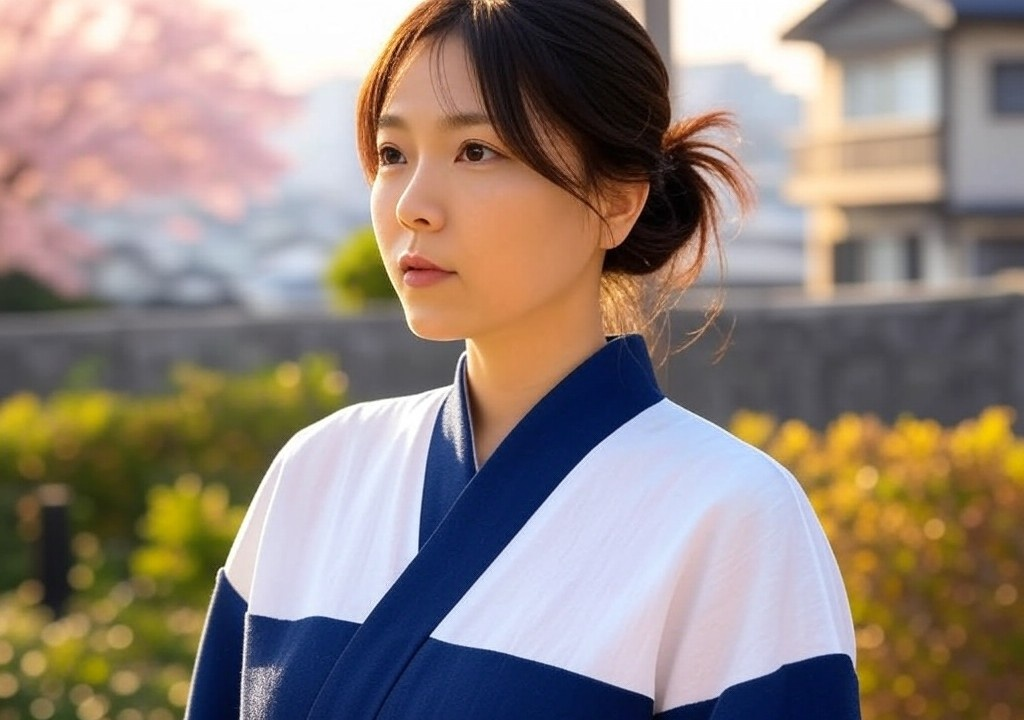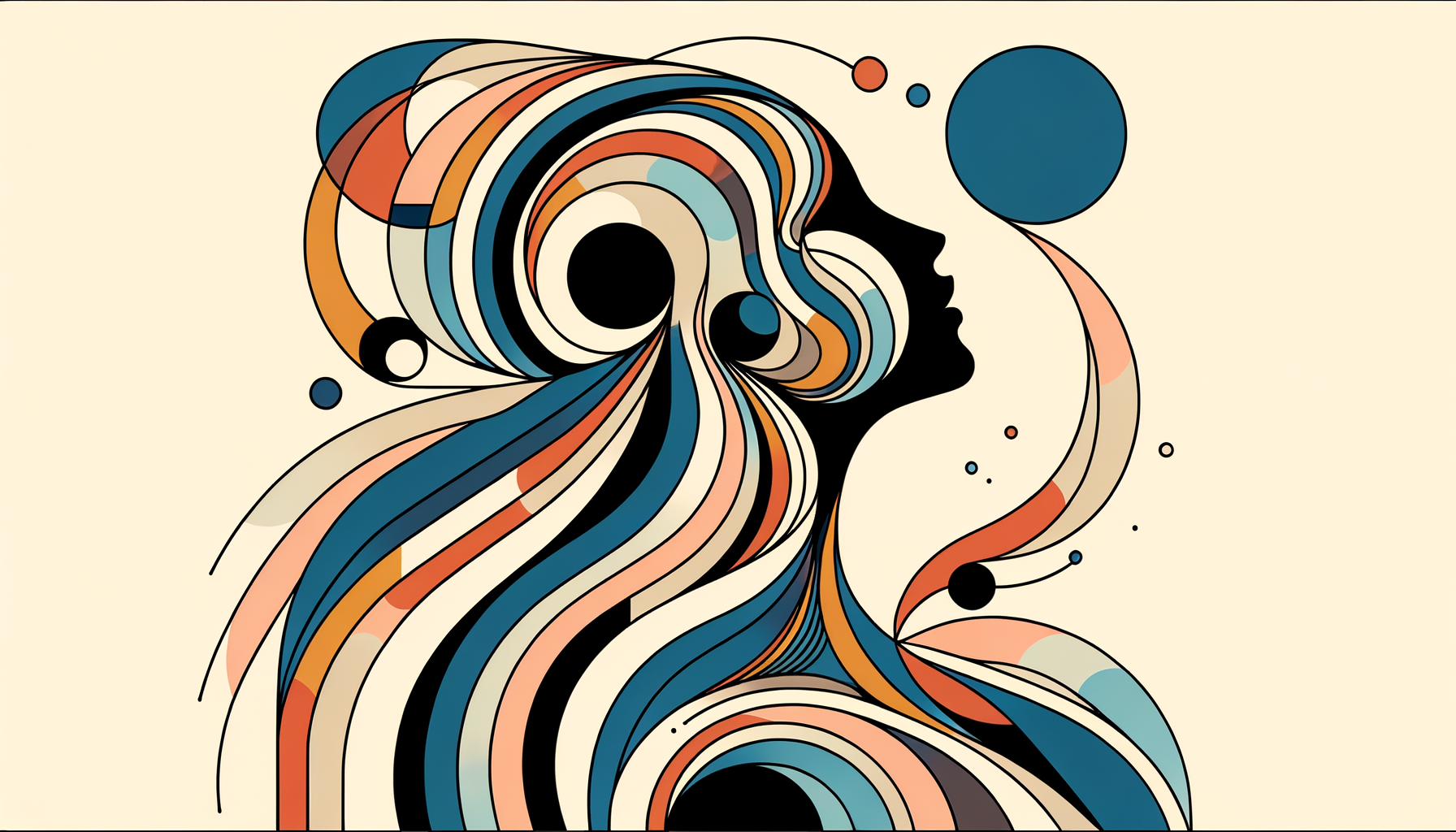For much of my twenties, I clung to the idea that friendships were simply the support beams of life: sturdy, useful, and there to keep the roof from caving in while you figured out everything more...glamorous (like romance or career success). Enter Aiko—a friend who didn’t just offer me a metaphorical beam but knocked down the walls and rebuilt the entire structure of how I saw love, relationships, and myself.
We met in a university art history seminar in Tokyo. I was a type-A academic with a color-coded schedule and a belief in the power of neatness. Aiko? She once spent an entire lecture sketching our professor as a shaggy Saint Bernard in her notebook. By the time she showed me the finished drawing, complete with a red bow-tie collar, I was crying with laughter. Humor aside, Aiko had a way of seeing the world—and people—that was both imaginative and disarmingly honest, a gift she would reluctantly use to change me in ways I could never have predicted.
A Sushi Bar Revelation
It started at a sushi bar in Shibuya, one of those conveyor belt places where plates zip by like entries in a speed-dating contest. I was in the middle of recounting my latest romantic trainwreck over a salmon nigiri when Aiko interrupted me mid-sigh:
“Let me guess—he ‘wasn’t ready for anything serious.’”
I froze, chopsticks raised in mock surrender because, yes, she was entirely right. Aiko rolled her eyes so far back I worried they might stay there. Then she smirked and said something I’ve never forgotten:
“Rina, if you keep dating men who only have three emotional tools—‘charm,’ ‘mild regret,’ and ‘ghosting’—don’t be surprised when they keep building you the same wobbly table of a relationship.”
While I sputtered in half-offense, half-amusement, Aiko casually plucked an unagi plate from the revolving belt, her point made. The truth was, I’d been defaulting to relationships where “connection” meant interpreting vague texts and binging shows together without ever discussing anything deeper than K-drama plot twists. Aiko helped me realize that my romantic life deserved at least as much critical attention as my thesis on Edo-period aesthetics.
Your Friends Know What You’re Pretending Not To See
What set Aiko apart wasn’t just her brutal wit (though that was impressive, and occasionally terrifying). She also had an uncanny ability to spot patterns I refused to acknowledge—like my habit of putting others’ feelings ahead of my own to avoid being seen as “too much.” She’d once spent ten full minutes roasting my tendency to text new crushes back faster than they deserved, staging a mock-text performance where she stared at her phone longingly before flinging it across the room with mock anguish, muttering, “Not until tomorrow, darling—they must think I’m mysterious.”
The thing is, Aiko didn’t mock me just for the fun of it (okay, maybe a little). She wanted me to see what I couldn’t: that part of my problem with dating wasn’t just the partners I chose, but that I wasn’t showing up as my real, complicated, full self. Instead, I was softening my edges, holding back opinions, and greasing my personality wheels to make relationships run more smoothly. In Aiko’s words:
“You’re a work of art—don’t let them treat you like a drink coaster.”
The Art Critic Approach to Friendships (and Life)
Here’s the magic of a friendship like Aiko’s: it doesn’t just change how you approach love, but how you approach everything. She treated life with the same curiosity and playfulness as we’d treat a painting by Renoir or Hokusai: leaning in to inspect every detail, asking the bold questions, and not shying away from the unpleasant truths hiding in the shadows. And she demanded I do the same.
When I moved to Vancouver in my late twenties to pursue my doctorate, the culture shock (and winter rainstorms) hit me harder than I’d anticipated. Aiko started emailing me weekly, signing off with things like, “Don’t forget: somewhere, someone is judging you favorably because of your scarf choice.” But buried in the jokes was her insistence that I view even struggles with curiosity, as though I were curating my own life instead of merely enduring it.
She’d also occasionally throw me curveball questions over Facetime, like:
“Why do you always describe men by their job titles first? Is it because you think they’re better defined by what they do than who they are?”
I’d groan, half-exasperated at her odd mix of therapist and philosopher energy, and quip back something about her watching too much Oprah. But I got the message: don’t just accept the stories you’ve been told. Examine them. Rewrite them.
Living Out Aiko’s Lessons
Aiko’s influence wasn’t a one-and-done epiphany. It was more like planting seeds in a garden I hadn’t realized was mine to cultivate. Over time, her words snuck into every corner of my life. I started asking better questions: Was I showing up authentically in this relationship? Did I even want a second date with this person, or was I going out with them because they fit some culturally-approved template of “right partner”? Was I prioritizing my needs—or just trying to avoid conflict?
More importantly, I began letting people see me—the version who blurts out bad puns when nervous, who ugly-cries over Chopin nocturnes and might analyze a crush’s favorite movie like it’s a Renaissance fresco. And if that made me “too much” for someone? Well, as Aiko would say, “Your capacity to feel deeply isn’t a flaw; it’s a filter.”
The Takeaway: Love Isn’t the Only Thing That Changes You
There’s something oddly romantic about the way movies present friendship—always tied to glowing montages of road trips and shared laughter. But the best friendships are more. They stretch you, lovingly but firmly, like trying on a new outfit you’re afraid might not fit. Aiko didn’t redefine love for me; she taught me how to love better, starting with myself.
And as much as I treasure the friends who listen quietly over coffee, everyone deserves at least one Aiko in their life: a neon sign of a human who refuses to co-sign your excuses and challenges you in the most unexpected, hysterical, and heartfelt ways. Someone who, like a great work of art, changes the way you see the world—and yourself—forever.
So, if you’re lucky enough to have a friend like that, send them a thank-you text today. Just don’t overthink how long to wait before sending it. Aiko would never forgive you for that.




















